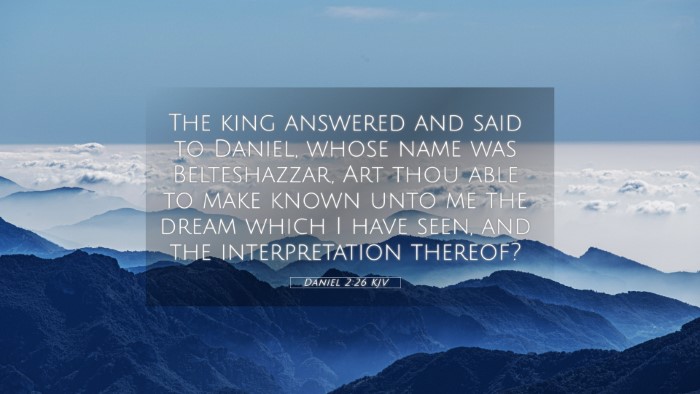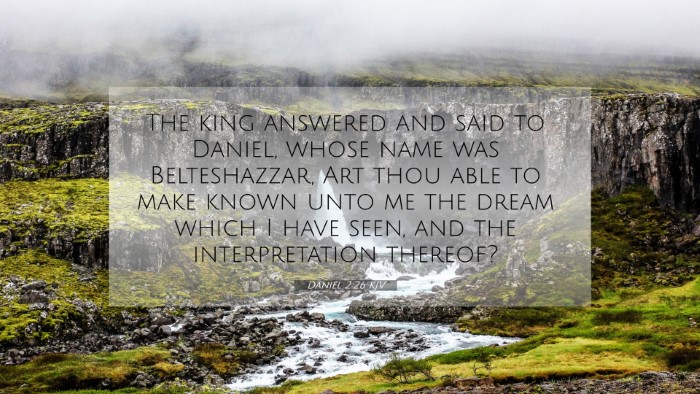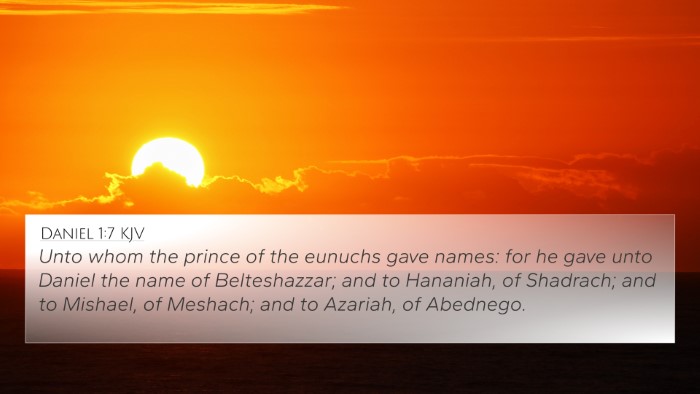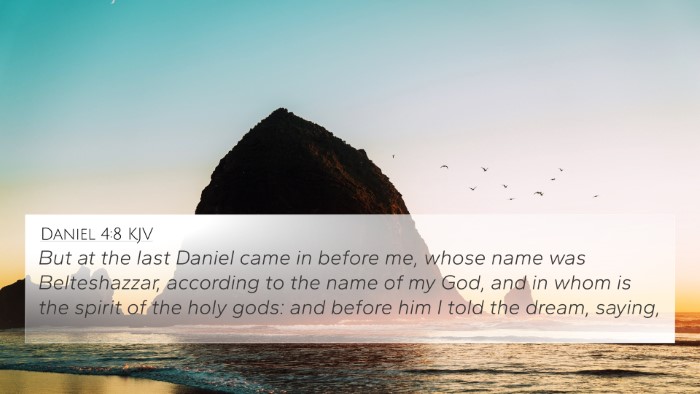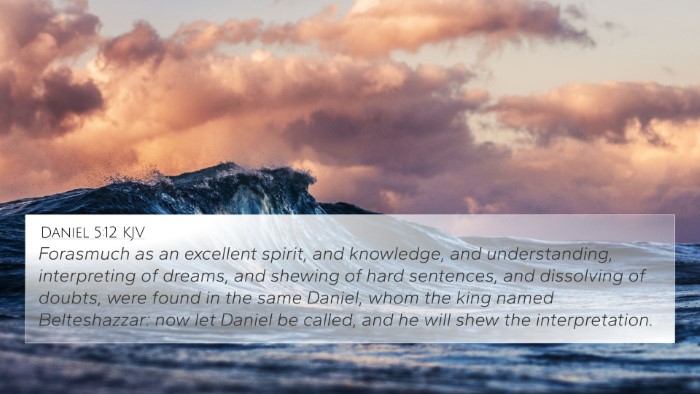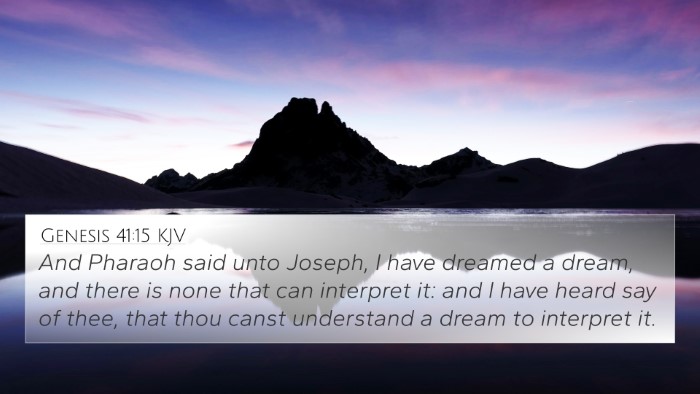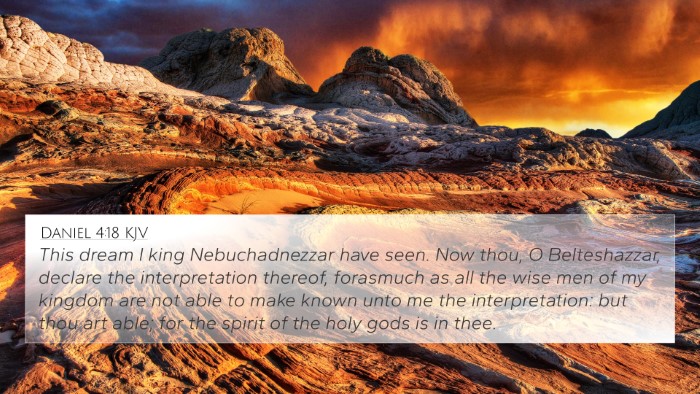Understanding Daniel 2:26
Daniel 2:26 states: "The king answered and said to Daniel, whose name was Belteshazzar, Are you able to make known to me the dream that I have seen and its interpretation?" This verse is pivotal in the context of the narrative, as it highlights Daniel's role as a divinely appointed interpreter of dreams.
Verse Context
This verse occurs during the account of King Nebuchadnezzar's troubling dream, which none of his wise men could interpret. It sets the stage for Daniel's unique ability, inspired by God, to not only recount the king's dream but also to explain its significance.
Commentary Insights
Various public domain commentaries provide depth to our understanding of this verse:
- Matthew Henry: He emphasizes God's sovereignty in revealing mysteries and how Daniel's understanding comes from divine wisdom rather than human endeavor. The question posed by Nebuchadnezzar reflects his desperation and the inadequacy of human wisdom.
- Albert Barnes: Barnes examines the contrast between the king's wise men and Daniel. He underscores that true wisdom comes from God and that Daniel's response is a testament to God’s faithfulness in times of crisis.
- Adam Clarke: Clarke notes the personal interaction between Nebuchadnezzar and Daniel, indicating a significant trust the king places in Daniel. This shows a transition from skepticism to reliance on divine revelation through Daniel.
Thematic Connections
Daniel 2:26 presents essential themes that resonate throughout Scripture:
- Divine Revelation: The ability to understand and interpret dreams is a recurring motif in the Bible, showing God’s direct involvement in human affairs.
- God's Sovereignty: This verse highlights how God raises individuals like Daniel to fulfill His purposes in the world, affirming His control over all events.
- Faith in God: Daniel's confidence to interpret the king's dream reflects a profound trust in God’s capability to provide wisdom.
Cross-References
Daniel 2:26 connects to several other Bible verses, enhancing our understanding through scriptural cross-referencing:
- Genesis 40:8: Joseph interprets the dreams of Pharaoh's prisoners, illustrating God's gift of dream interpretation.
- 1 Corinthians 12:8: Wisdom is listed as a spiritual gift, emphasizing that spiritual wisdom is a divine endowment.
- Proverbs 2:6: "For the Lord gives wisdom; from his mouth come knowledge and understanding," reflecting the source of true wisdom as God.
- James 1:5: Encourages believers to seek wisdom from God, reinforcing that it is accessible to those who ask.
- Acts 10:9-16: Peter's vision illustrates God communicating wisdom and urging His followers to recognize divine messages.
- Job 12:13: "With God is wisdom and might; He has counsel and understanding," further asserting the theme of divine wisdom.
- Isaiah 44:25: God frustrates the signs of liars and makes fools of diviners, highlighting the futility of relying solely on human wisdom.
Practical Applications
Understanding Daniel 2:26 along with its related verses can be beneficial in various ways:
- Encouragement in Uncertainty: Like Daniel, believers can seek God's wisdom during times of trials or confusion. They can learn that genuine understanding comes from God alone.
- Strengthening Faith: The verse encourages reliance on divine capabilities, helping to solidify a believer's faith in God's overarching plan.
- Applying Wisdom: Taking inspiration from Daniel’s humility and wisdom can encourage believers to seek guidance and understanding in their lives through prayer and scripture.
Conclusion
Daniel 2:26 not only introduces us to the protagonist of the story but also sets a precedent for how God provides insight and guidance in challenging circumstances. By exploring this verse with the insights from public domain commentaries and connecting it with other scriptural passages, believers can gain a richer understanding of the text and apply its lessons to their spiritual lives.

